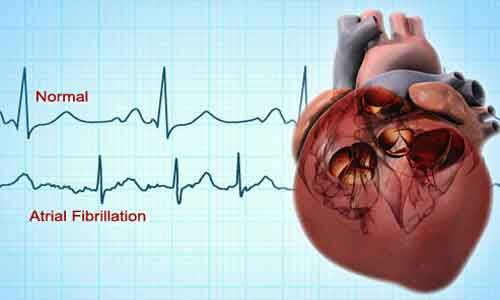- Home
- Medical news & Guidelines
- Anesthesiology
- Cardiology and CTVS
- Critical Care
- Dentistry
- Dermatology
- Diabetes and Endocrinology
- ENT
- Gastroenterology
- Medicine
- Nephrology
- Neurology
- Obstretics-Gynaecology
- Oncology
- Ophthalmology
- Orthopaedics
- Pediatrics-Neonatology
- Psychiatry
- Pulmonology
- Radiology
- Surgery
- Urology
- Laboratory Medicine
- Diet
- Nursing
- Paramedical
- Physiotherapy
- Health news
- Fact Check
- Bone Health Fact Check
- Brain Health Fact Check
- Cancer Related Fact Check
- Child Care Fact Check
- Dental and oral health fact check
- Diabetes and metabolic health fact check
- Diet and Nutrition Fact Check
- Eye and ENT Care Fact Check
- Fitness fact check
- Gut health fact check
- Heart health fact check
- Kidney health fact check
- Medical education fact check
- Men's health fact check
- Respiratory fact check
- Skin and hair care fact check
- Vaccine and Immunization fact check
- Women's health fact check
- AYUSH
- State News
- Andaman and Nicobar Islands
- Andhra Pradesh
- Arunachal Pradesh
- Assam
- Bihar
- Chandigarh
- Chattisgarh
- Dadra and Nagar Haveli
- Daman and Diu
- Delhi
- Goa
- Gujarat
- Haryana
- Himachal Pradesh
- Jammu & Kashmir
- Jharkhand
- Karnataka
- Kerala
- Ladakh
- Lakshadweep
- Madhya Pradesh
- Maharashtra
- Manipur
- Meghalaya
- Mizoram
- Nagaland
- Odisha
- Puducherry
- Punjab
- Rajasthan
- Sikkim
- Tamil Nadu
- Telangana
- Tripura
- Uttar Pradesh
- Uttrakhand
- West Bengal
- Medical Education
- Industry
Systematic, early rhythm control beneficial for atrial fibrillation patients with or without symptoms: EAST-AFNET 4 trial

Germany: Results from a prespecified analysis of the EAST-AFNET 4 trial showed that the clinical benefit of early, systematic rhythm control were equivalent between asymptomatic and symptomatic patients in the trial. Findings of the study, published in the European Heart Journal, call for a shared decision debating of the benefits of rhythm control therapy in patients with recently diagnosed atrial fibrillation (AF) and a concomitant heart condition.
Recent clinical practice guidelines have recommended rhythm control therapy only for patients with symptomatic AF. The EAST-AFNET 4 trial had showed that early, systematic rhythm control improves clinical outcomes compared to symptom-directed rhythm control. In the prespecified EAST-AFNET 4 analysis, Paulus Kirchhof, Atrial Fibrillation Network (AFNET), Münster, Germany, and colleagues compared the effect of early rhythm control therapy in asymptomatic patients (EHRA score I) to symptomatic patients.
Primary outcome was a composite of death from cardiovascular causes, stroke, or hospitalization with worsening of heart failure or acute coronary syndrome, analyzed in a time-to-event analysis.
The research yielded the following findings:
- At baseline, 801/2633 (30.4%) patients were asymptomatic [mean age 71.3 years, 37.5% women, mean CHA2DS2-VASc score 3.4, 169/801 (21.1%) heart failure].
- Asymptomatic patients randomized to early rhythm control (395/801) received similar rhythm control therapies compared to symptomatic patients [e.g. AF ablation at 24 months: 75/395 (19.0%) in asymptomatic; 176/910 (19.3%) symptomatic patients].
- Anticoagulation and treatment of concomitant cardiovascular conditions was not different between symptomatic and asymptomatic patients.
- The primary outcome occurred in 79/395 asymptomatic patients randomized to early rhythm control and in 97/406 patients randomized to usual care (hazard ratio 0.76), almost identical to symptomatic patients.
- At 24 months follow-up, change in symptom status was not different between randomized groups.
"The clinical benefit of early, systematic rhythm control was not different between asymptomatic and symptomatic patients in EAST-AFNET 4," wrote the authors.
"These results call for a shared decision discussing the benefits of rhythm control therapy in all patients with recently diagnosed AF and concomitant cardiovascular conditions," they concluded.
Reference:
Stephan Willems, Katrin Borof, Axel Brandes, Günter Breithardt, A John Camm, Harry J G M Crijns, Lars Eckardt, Nele Gessler, Andreas Goette, Laurent M Haegeli, Hein Heidbuchel, Josef Kautzner, G André Ng, Renate B Schnabel, Anna Suling, Lukasz Szumowski, Sakis Themistoclakis, Panos Vardas, Isabelle C van Gelder, Karl Wegscheider, Paulus Kirchhof, Systematic, early rhythm control strategy for atrial fibrillation in patients with or without symptoms: the EAST-AFNET 4 trial, European Heart Journal, 2021;, ehab593, https://doi.org/10.1093/eurheartj/ehab593
Dr Kamal Kant Kohli-MBBS, DTCD- a chest specialist with more than 30 years of practice and a flair for writing clinical articles, Dr Kamal Kant Kohli joined Medical Dialogues as a Chief Editor of Medical News. Besides writing articles, as an editor, he proofreads and verifies all the medical content published on Medical Dialogues including those coming from journals, studies,medical conferences,guidelines etc. Email: drkohli@medicaldialogues.in. Contact no. 011-43720751


